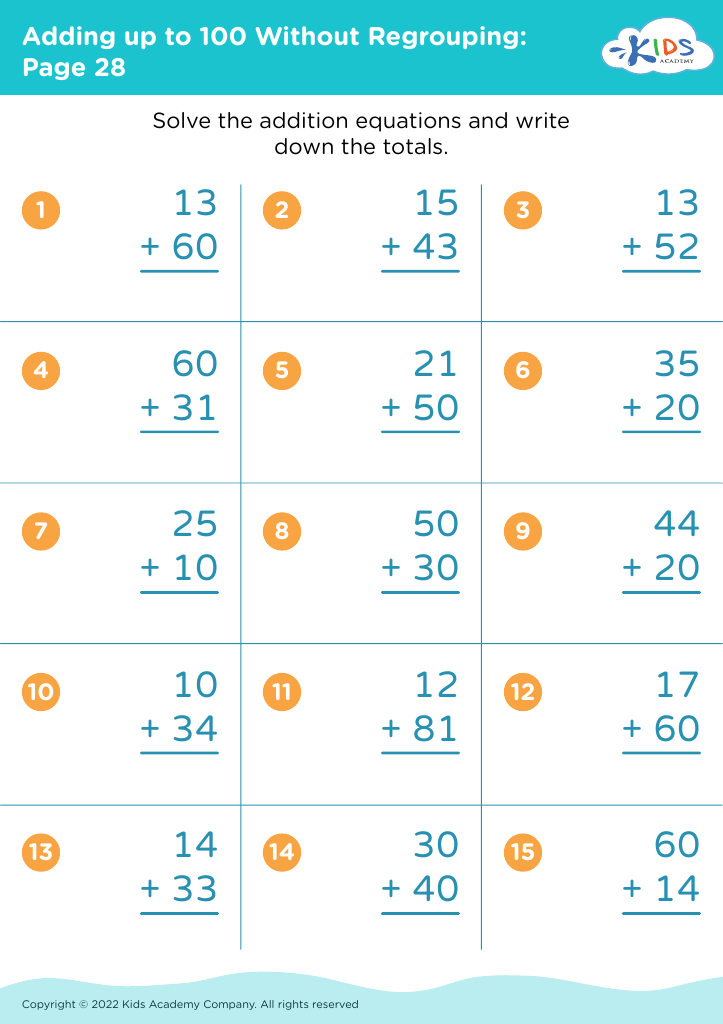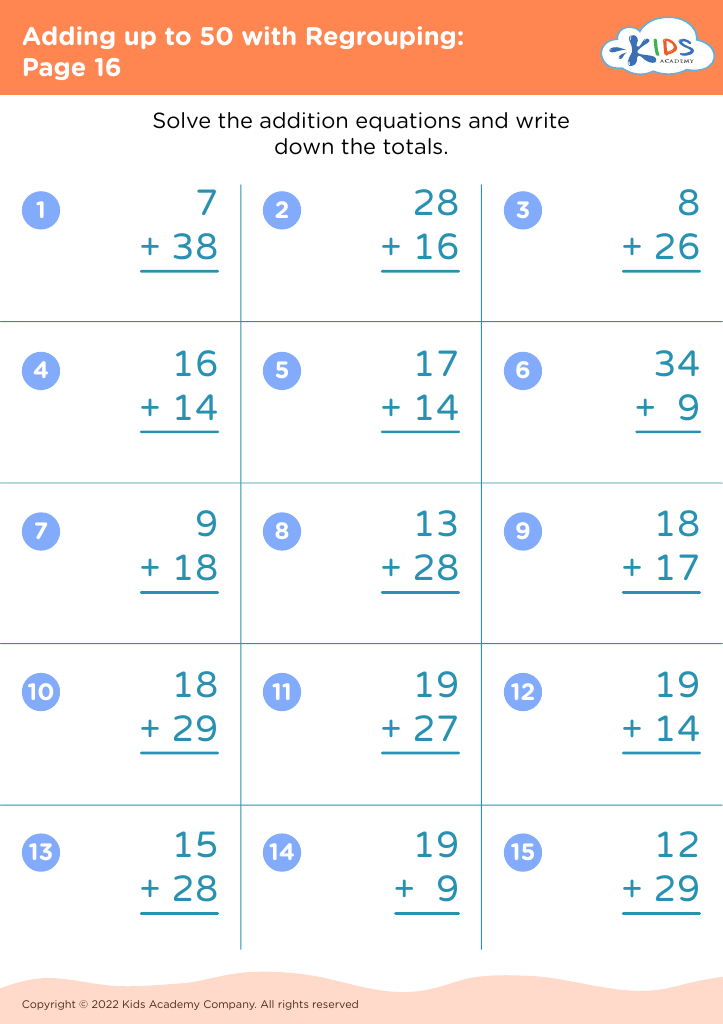Critical thinking development Addition & Subtraction Worksheets for Ages 3-7
3 filtered results
-
From - To
Discover our carefully crafted Critical Thinking Development Addition & Subtraction Worksheets, designed for children aged 3-7. These engaging activities not only help young learners master essential math skills like addition and subtraction but also foster critical thinking and problem-solving abilities. Each worksheet presents fun, interactive problems that challenge kids to think logically and creatively, making learning an enjoyable adventure. Ideal for early grade classrooms or homeschool settings, our worksheets are a valuable resource for nurturing a strong mathematical foundation while encouraging independent thought. Equip your child with the tools for success with our expert-designed math resources!
Critical thinking development and foundational math skills like addition and subtraction are crucial for young children aged 3-7. During these early years, a child's brain is incredibly adaptable and capable of rapid learning. Cultivating critical thinking at this stage helps foster problem-solving abilities, creativity, and logical reasoning. These skills are not only essential for academic success but also for everyday decision-making and future challenges in life.
Addition and subtraction are fundamental components of early math education. Understanding these concepts helps children grasp more complex mathematical ideas as they grow. It builds their number sense, the ability to recognize relationships between numbers, and develop mental arithmetic skills. Furthermore, engaging with math problems enhances critical thinking by forcing children to evaluate different strategies, make decisions, and understand consequences.
When parents and teachers emphasize critical thinking and basic math skills, they are essentially laying down a strong educational foundation. This preparation sets children up for lifelong learning, enabling them to question, analyze, and approach problems effectively. Beyond academics, these skills are invaluable in fostering independence, emotional intelligence, and resilience. Therefore, early emphasis on critical thinking and basic math is crucial for holistic development during a child’s formative years.























